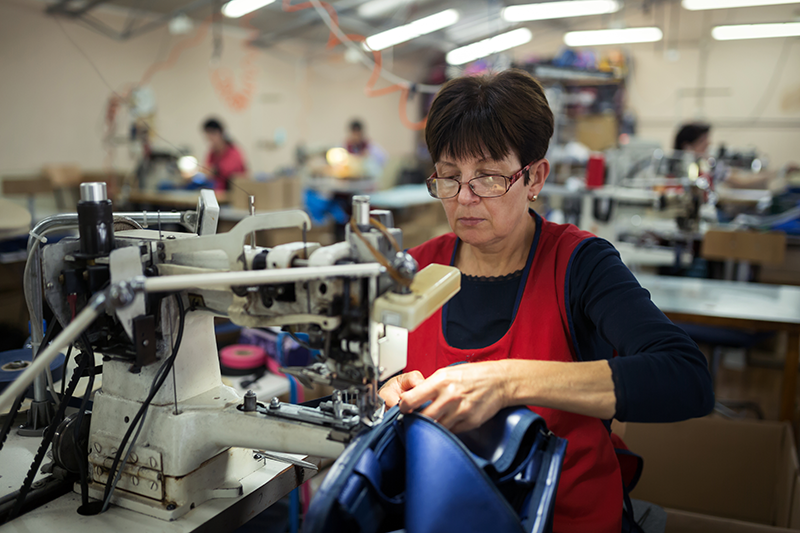
Plaća i dohodak
Plaća i dohodak ključni su za radne odnose i kvalitetu života. To je pitanje dobilo još više pozornosti na razini EU-a zbog krizom izazvanih događaja u gospodarstvu i društvu u cjelini.

Europski stup socijalnih prava utvrđuje obveze EU-a u pogledu plaća: pravo radnika na pravednu plaću koja osigurava pristojan životni standard; osiguravanje odgovarajućih minimalnih plaća; sprečavanje siromaštva unatoč zaposlenju.
Eurofound redovito izvješćuje o različitim aspektima plaće i dohotka u kontekstu promjenjivih gospodarskih okolnosti u cijeloj Europi.
S pomoću Europskog opservatorija radnog vijeka (EurWORK) Eurofound objedinjuje cijeli niz podataka o plaćama. Redovitim izvješćivanjem dobiva se dulji niz zapažanja o kolektivno ugovorenoj plaći kako bi se mogli pratiti trendovi. Eurofound redovito objavljuje tematska izvješća o zajamčenim minimalnim plaćama i kolektivno ugovorenim plaćama. Eurofound prati razvoj događaja na nacionalnoj razini u odnosu na mehanizme za određivanje plaća, jednaku plaću, varijabilnu plaću, nisku plaću i razlike u plaćama među spolovima.
Profili zemalja u pogledu radnog vijeka sadržavaju podatke o plaćama na nacionalnoj razini i redovito se ažuriraju. EurWORK održava dvije baze podataka o plaćama (vidjeti izvore u nastavku).
Eurofoundov Europski centar za praćenje poslova (EJM) prema različitim kvalitativnim mjerama, uključujući plaću, procjenjuje promjene u zaposlenosti po poslovima. To posebno doprinosi našem znanju o pojavi polarizacije zapošljavanja, tj. o mjeri u kojoj postoji veća vjerojatnost da će rast zaposlenosti biti veći u zanimanjima koja su najviše, odnosno najmanje plaćena nego u zanimanjima u kojima su plaće srednje vrijednosti.
Rezultati istraživanja
Eurofoundova istraživanja prate i situaciju u EU-u u pogledu plaća. Plaća je ključan element u Eurofoundovu istraživanju o kvaliteti rada. U Europskom istraživanju o radnim uvjetima (EWCS) zarada je jedan od sedam pokazatelja kvalitete posla. Europsko istraživanje o radnim uvjetima izvješćuje i o razlikama u plaćama među spolovima. Istražite EWCS-ov interaktivni alat za vizualizaciju podataka .
Europsko istraživanje o kvaliteti života (EWCS) prati utjecaj dohotka na životni standard te istražuje kako je nejednakost u dohodcima povezana sa socijalnom kohezijom i dobrobiti. U njemu se analizira kako je gospodarska kriza utjecala na obitelji, pridajući posebnu pažnju obiteljima s niskim dohotkom, dugu kućanstava i skupinama koje su u riziku od siromaštva. U Europskom istraživanju o kvaliteti života prikupljaju se podatci i o dohotku u mirovini te mogućnostima produljenja radnog vijeka. Istražite EQLS-ov interaktivni alat za vizualizaciju podataka.
Europsko istraživanje o poduzećima (ECS) obuhvaća upotrebu sustava varijabilnih plaća u ustanovama, kao i kolektivne ugovore o plaćama svih zaposlenika tih ustanova. Istraživanje omogućava povezivanje podataka o varijabilnoj plaći i pregovaranju o plaćama s podacima o organizaciji rada, upravljanju ljudskim resursima, izravnom sudjelovanju zaposlenika i socijalnom dijalogu, kao i učinkovitosti i dobrobiti na radnom mjestu.






